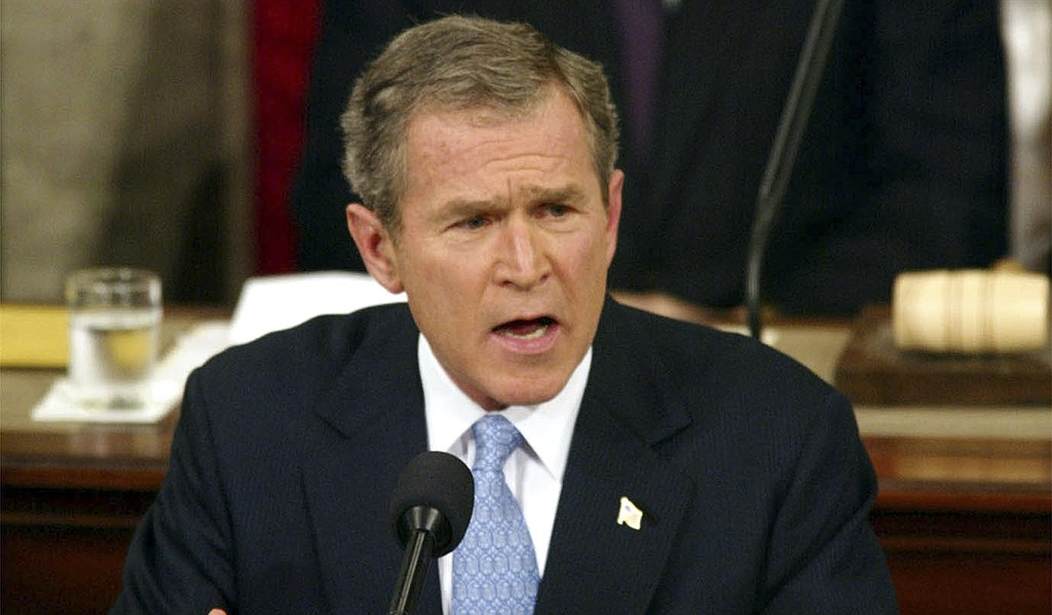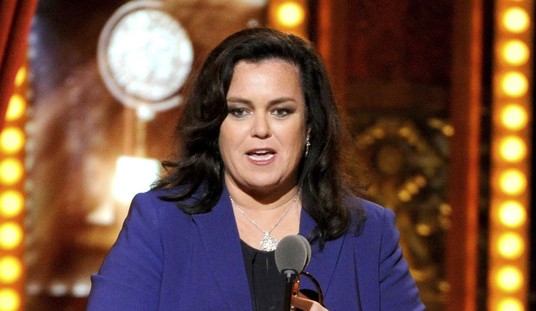It’s still too soon to make the definitive historical assessment of the Iraq War, the good, the bad, and the ugly — even assuming such a thing is even possible. But it’s never too soon to correct the historical revisionism that’s taken place in recent years.
There’s a new narrative, peddled increasingly by people on the right, that the war was the sinister work of a cabal of neocon warmongers. I’ve seen this line of thought promoted, sometimes cruelly, by people who seem to have forgotten that, like me, they were on the pro side of the debate. Opinions changed and asses were covered as the Iraq War turned foul — such is human nature. Remember John Kerry during the 2004 presidential election, furiously backpedaling from his own Yea vote on the authorization for the use of force against Saddam.
The biggest mistake I made was in promoting a war that, I said at the time, would require a multi-generational effort at nurturing Iraq’s infant democracy. I forgot, or maybe I chose to forget, the Iron Law of American Public Opinion. After three years of fighting, no matter how just the cause (even WWII), Americans will start to tire of war. If you’re pushing for a major war that doesn’t have a 36-to-48-month endgame, then don’t bother. For what it’s worth, I haven’t since. If it comes down to a choice between cutting off the weapons flow to Ukraine or sending a single American soldier to fight there… then sayonara, Kyiv.
But back to the lead-up to the Iraq War.
The old narrative, peddled largely by those on the left, was the so-called “rush to war.” President George W. Bush just went to war one day, without considering the consequences. However, a year and a half passed between 9/11/2001 and 3/20/2003, with Iraq and Saddam Hussein becoming vital issues almost immediately after 9/11. In fact, the debate over what to do with Saddam began years earlier.
Congress passed the Iraq Liberation Act in October of 1998, in part because Saddam had “failed to comply with the obligations to which it had agreed following the Gulf War.” The bill, reminds Brian Stewart at Quillette, “proclaimed that US policy was ‘to support efforts to remove the regime headed by Saddam Hussein from power in Iraq and to promote the emergence of a democratic government.’ The vote was 360–38 in the House, unanimous in the Senate.” President Bill Clinton signed it into law, warning that unless stopped, Saddam would “conclude that he can go right on and do more to rebuild an arsenal of devastating destruction. And some day, some way, I guarantee you he’ll use the arsenal.”
You could be forgiven for mistaking Clinton in 1998 for W in 2002.
The debate over toppling Saddam was public, passionate, detailed, and lengthy. The result was an un-rushed and broad consensus for the Iraq War. The consensus was largely international, too, with more than 40 countries — including our British cousins — coming along.
But just because the consensus was broad doesn’t mean we got it right.
Recommended: Poland Becomes First NATO Country to Send Fighter Jets to Ukraine
A nice-sounding theory about occupying Iraq with a “small footprint” turned out to be garbage, and maybe a shooting war wasn’t the time or place to test it. “The invasion force had 150,000 American troops,” foreign affairs analyst Bobby Ghosh wrote on Monday, which was “sufficient to win the war in short order but not to secure the peace — which should have included protecting the borders and reestablishing law and order.”
I remember watching in creeping horror as Iraq slowly descended into civil war in 2005-06, while Bush remained in official denial and did nothing until the “surge” of 2007. Worse, Bush’s slow response emboldened Iran to wage a silent war on our troops. A larger force and a swift, punishing reaction to Iranian aggression might have changed much.
There are stupid and even well-meaning mistakes in every war, and I’m not here to dwell on ours. I bring up a few, in part, to avoid glossing over the horrors of this war — or any war, really.
Iraq is almost inarguably a better place than it was on March 19, 2003. “Iraq is still, in all likelihood, almost by any judgment,” evangelical theologian Albert Mohler concluded on the war’s anniversary, “the freest and most democratic of all the nations in that region.” Barring Israel, of course. What Iraqis do with that freedom is up to them, as it should be.
Perhaps in 20 years, things will look different, even better. But the view today is that while Iraq is better off, America is not. And what is American foreign policy for, if not to promote a world that makes it possible for Americans to live the lives we choose, in peace and liberty? By that measure, from the view we have today, we failed.
In the end, the war was too much blood and treasure. That’s true of every war, man’s worst endeavor, but perhaps the Iraq War stings because it wasn’t a war of necessity.
The domestic political fallout of the Iraq War is still with us in deeply damaging ways.
The Republican and conservative establishments were largely discredited. We got the election of Barack Obama in 2008, his spending and debt, and worst of all, his long-lasting weaponization of the federal bureaucracy against half of America. And now the follow-up election of his former vice president, Joe Biden, in 2020. In between, that discredited GOP establishment gave way to Donald Trump, and perhaps someday to another “usurper,” Ron DeSantis. So it wasn’t all bad.
Not everything I’ve mentioned was 100% the result of, or in some cases even mostly the result of, our Iraq War. But every war sets in motion consequences impossible to predict, and those are just a few that started moving into place when the tanks rolled north on March 19, 2003.










Join the conversation as a VIP Member